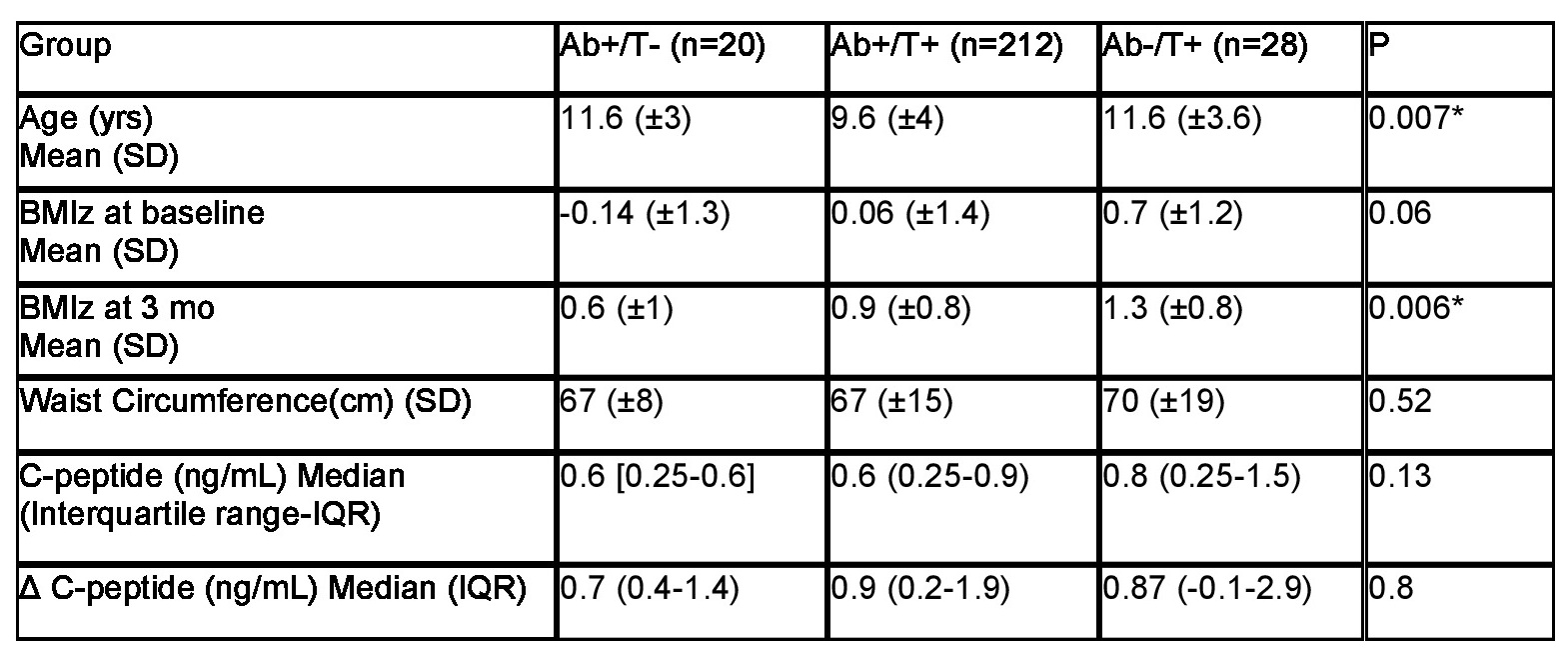Poster Presentation The 13th International Congress of the Immunology of Diabetes Society 2013
T-cell autoreactivity at onset of pediatric Type 1 Diabetes (T1D) is related to adiposity but not autoantibodies nor c-peptide (#66)
Objectives:T-cell reactivity to diabetes-related antigens distinguishes T1D from controls and may precede autoantibody (Ab) detection. Relationships between adiposity and T-cell reactivity in T1D are unknown. We assessed relationships between T-cell reactivity to T1D-related antigens and islet autoantibodies, measures of adiposity and insulin sensitivity and c-peptide in normal and overweight new onset T1D children.
Methods:Subjects with T1D between 12/2004 and 6/2008 were included (n=261): age 1.2-18.9yrs, 92% white, 60% male. T-cell autoreactivity to 10 antigens, Ab (GADA, IA-2A, IAA, ICA), body mass index (BMI) %ile, waist %ile and c-peptide at onset and 3 months were measured.
Results:Abnormal T cell reactivities were not related to autoantibody number, nor HLA.DQ. Subjects with BMI %ile ≥85th had higher T-cell autoreactivities to 5 neuronal T1D-associated analytes (p< 0.05). Subjects with waist %ile ≥85th had higher SI’s for 3 neuronal analytes, (p<0.05). The 28 Ab negative subjects (only 1 also T-cell negative) had similar c-peptides, but higher BMIz than those with positive Ab. The cohort was subdivided by Ab and T-cell characteristics. (table 1)

Conclusions:This observation links elevated BMI and T-cell autoreactivity in T1D. In overweight new onset T1D children, T-cell autoreactivity to neuronal analytes is enhanced by adiposity and insulin resistance. With 1 exception, the entire cohort demonstrated islet autoimmunity with similarly low c-peptide levels.